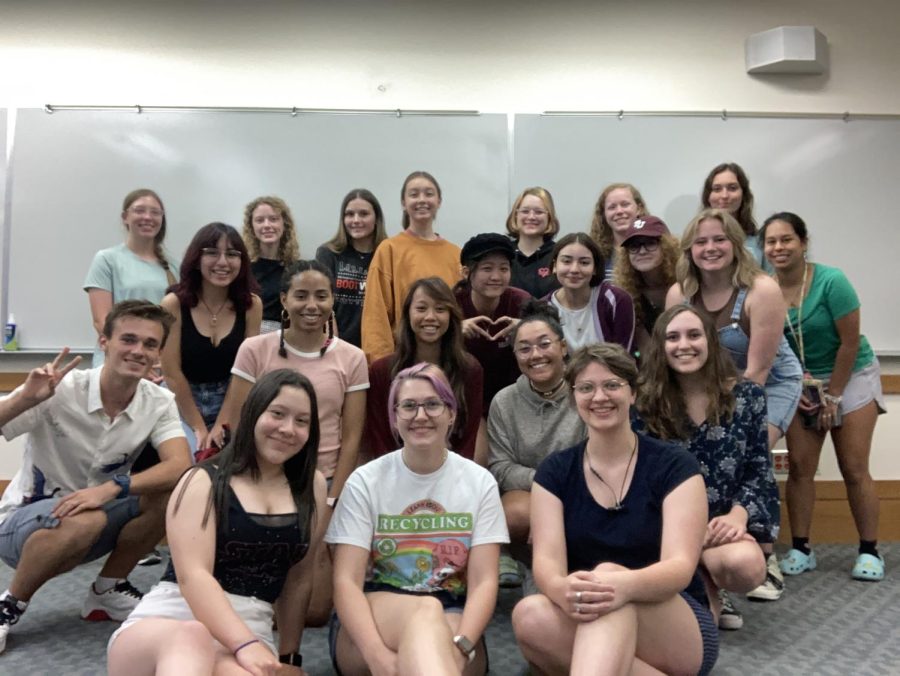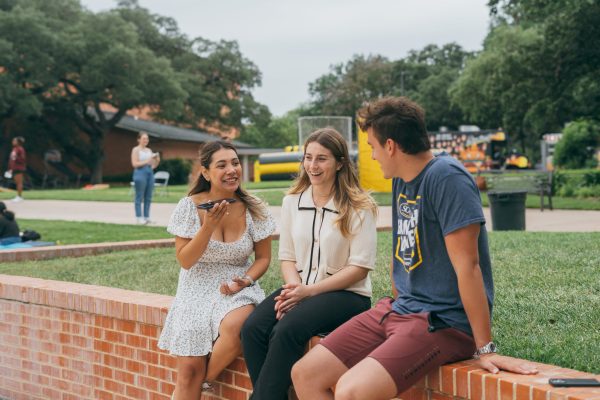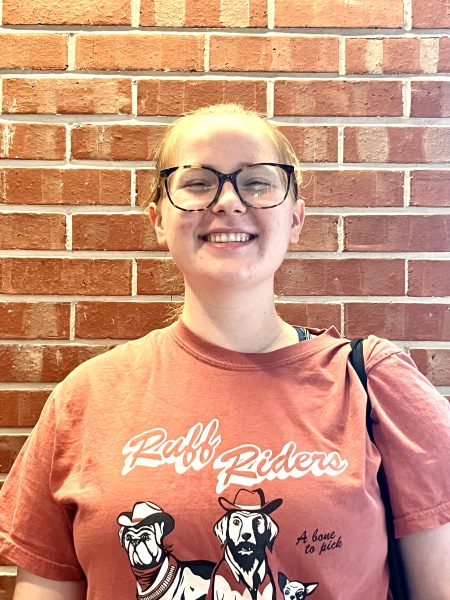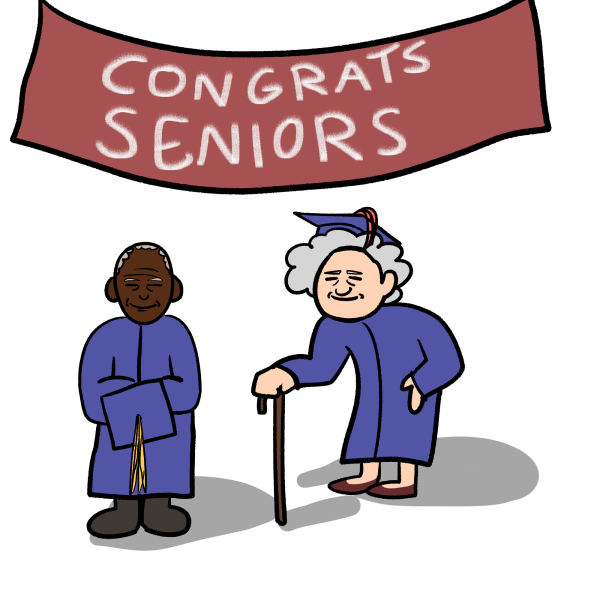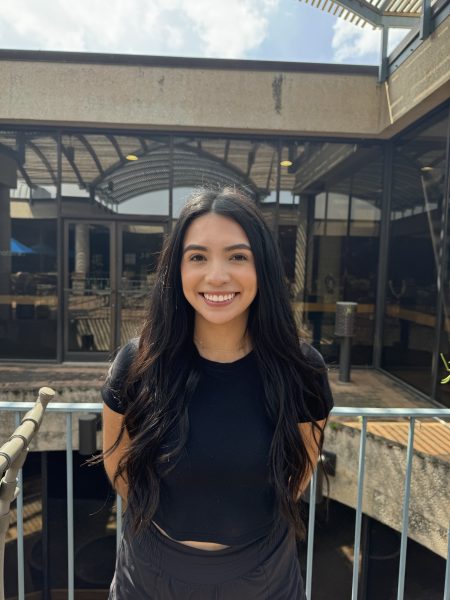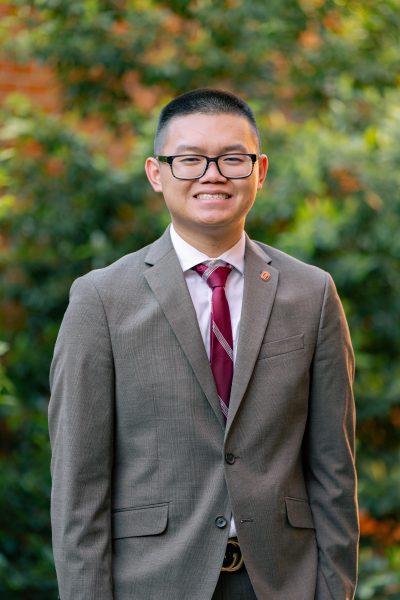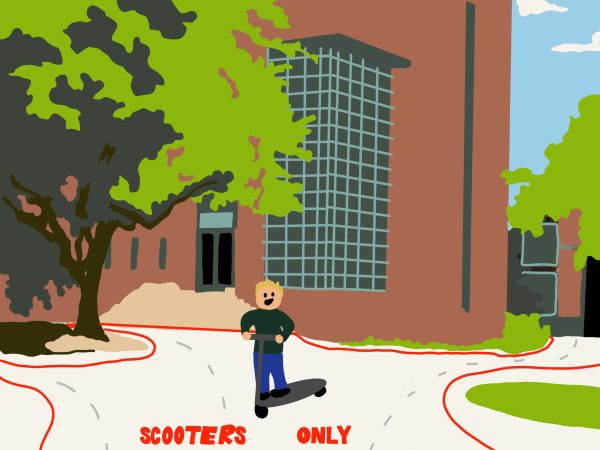The Culture of Communication: Trinity’s ASL Club Promotes Inclusivity
Trinity’s ASL Club introduces a collaborative and expressive form of communication to interested students
ASL Club at their first meeting
When Sydney Crowther, senior psychology major, was 13 years old and living in Australia, she had a friend who was hard of hearing and knew Australian Sign Language (Auslan). In an attempt to further connect with her friend, Crowther began to learn American Sign Language (ASL), mixing up the two languages. Her friend, however, decided to learn ASL with Crowther. When Crowther moved to the United States, she tried to keep it up, and Trinity’s ASL Club has helped her stick with it. Crowther is now the ASL Club’s President.
According to the World Health Organization, nearly 20% of the global population is living with hearing loss. Trinity’s ASL Club aims to get students interested in ASL and to promote a relationship between Trinity and the Deaf community in San Antonio.
“Apart from the importance of being diverse and inclusive and understanding different cultures, even within your own culture, it’s really fun,” Crowther said. “It’s really interesting to see the way that a sign can visually capture a word.”
The club meets Tuesdays from 6-7 pm in Northrup Hall, room 232, and students of all skill levels are able to learn and practice ASL. Julie Schwam, a first-year business and pre-law major, took ASL for three years in high school.
“I highly enjoyed it. I got to meet people that became deaf as they grew up, I met people that have always been deaf, and the culture there is just so amazing,” Schwam said. “The people I met were just so sweet. And they were so encouraging of us learning this language that not a lot of people know.”
Crowther said that people do not think of the Deaf community as having a culture. Because of that, the club focuses on raising that cultural awareness on campus. The club also will do coffee chats and movie nights with communities of Deaf people around San Antonio. The majority of the club right now is new to sign language.
“We try to start off slow and allow students to choose if they want to learn more that day or just sit around and practice,” Crowther said. “We try to split up into little groups so that people who are more advanced can sign together, just to get practice going.”
Crowther said that hopefully there can be some dialogue with Trinity’s administration about introducing an ASL class. She said that from communications last year, she knows that the reason there is not a class is because ASL is not considered a foreign language.
Schwam said that if it were a class, even if it did not fulfill a foreign language requirement, she would still take it. She said that just because ASL is not going to equip her to study abroad does not mean it is not an important language to learn.
“There’s plenty of culture behind it. I just wish that we could incorporate it because I’ve taken classes and they’re really fun,” Schwam said. “I learned so much. Not just the language, but also so much culture.”
Unlike talking, sign language involves communicating with your whole body. Crowther said this allows for unique and interesting storytelling that traditionally-spoken language does not provide.
“It’s fun to be so dynamic and expressive in the way that you’re communicating. We’re not used to using all these facial expressions and being so vibrant with our bodies when we’re communicating,” Crowther said. “I think seeing that in a form of language is really beautiful.”
Schwam said that one time she went to a play performed in sign language and that the theater was packed with people. She said that while there was a voiceover, the sign language piqued her interest.
“It’s good to get out of your comfort zone and learn somebody else’s culture and learning some of their language is part of that,” Schwam said.
Crowther pointed out that there are many reasons why sign language is not a more common mode of communication. Because deafness is seen as a disability instead of just a difference of functioning, it tends to be something people look down on. Sometimes people see learning a new language as unnecessary to them. However, learning a new language is mentally stimulating and it improves memory, on top of being fun.
“It’s exciting. It’s something new,” Crowther said. “It’s not for everyone, but I think it’s for everyone to try.”
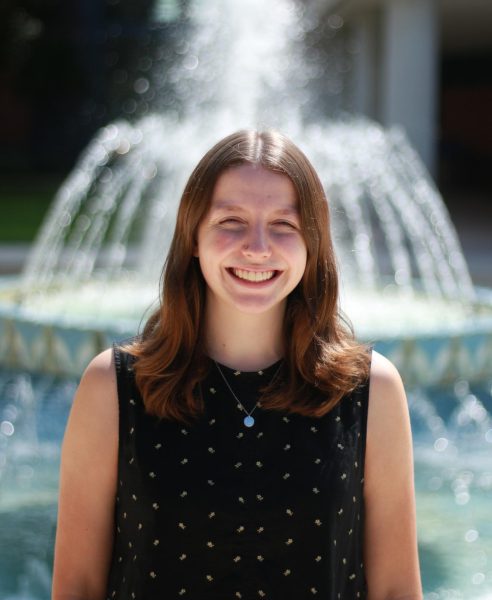
Hi! My name is Lauren Roddis (she/her/hers), and I am the Arts & Entertainment section editor! I am a junior from Spokane, WA, double majoring in Communication...

